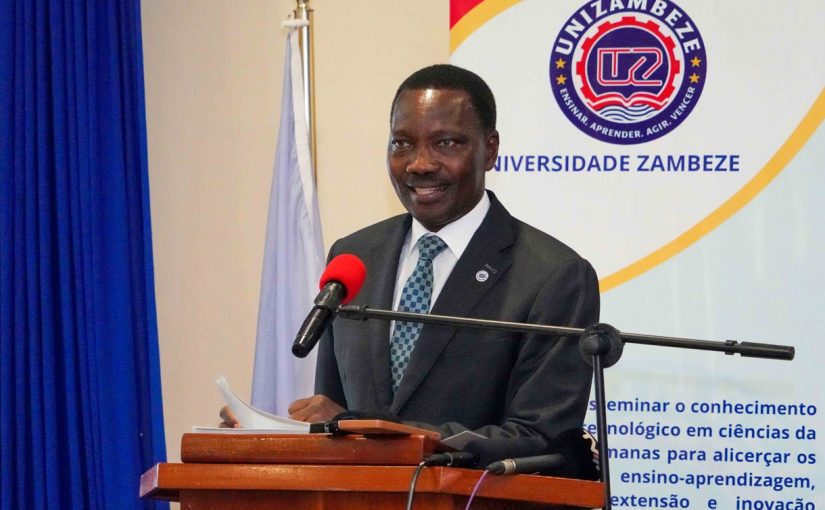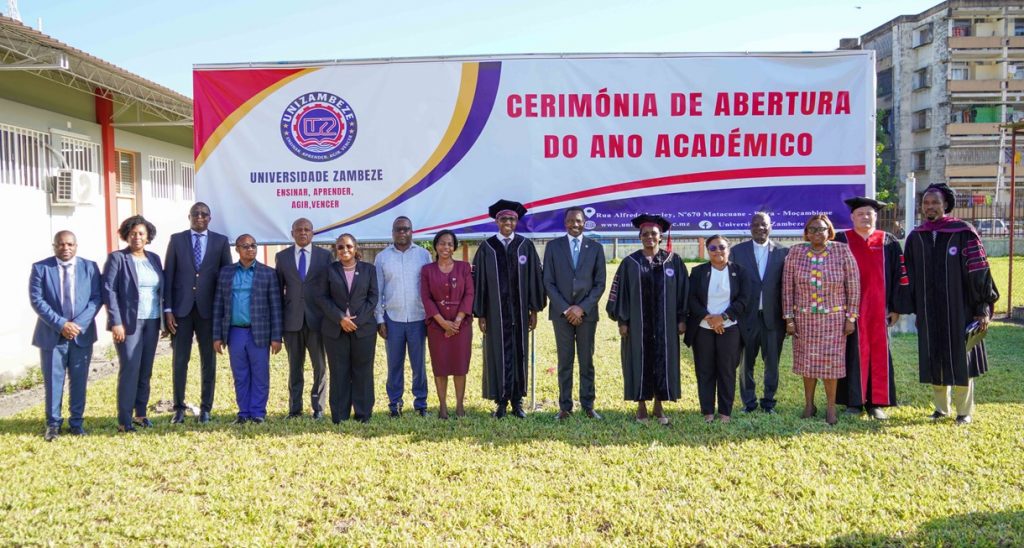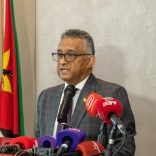Mozambique: Workers demand higher wages on May Day
Mozambique: A third of population have access to banking services – governor

Rogério Zandamela said at the opening of the Academic Year in Unizambeze, in Beira city. [Photo: Banco de Moçambique]
A third of Mozambique’s population has access to banking services and 93% to services provided by Electronic Money Institutions (EMIs), which operate via mobile phone, the governor of the Bank of Mozambique said on Thursday.
“Today, every district in the country has at least one point of access to financial services. A third of the population has access to banking services, and 93% of the population has access to EMI services,” Rogério Zandamela said at the opening of the Academic Year in Unizambeze University, in Beira city.
He justified these results with the reforms underway in the sector, which have allowed Mozambique to “increasingly improve levels of financial inclusion”.
“Throughout the country, we have more than 90,000 EMI accounts for every 100,000 adults. In addition, more than 1,250 EMI agents per 100,000 adults are in operation throughout the country,” he said.
As a “result of interoperability” in the system, “transactions increased significantly between 2022 and 2023, particularly transfers from banks to EMIs,” which rose from 61,000 to 888,000, “as well as transfers between EMIs, from 17.7 million to 74.7 million transactions.”
In the same speech, on the theme of “The importance of financial inclusion in boosting economic development”, Rogério Zandamela highlighted the recent results in terms of financial literacy, which reached 51%, and “where digital financial literacy is around 40%”.
The governor recognised that “there is still a lot to be done”, and pointed out as an example that “the 31% of access to banking services is still below that of countries like Zimbabwe, with 46%, Nigeria with 40% and Lesotho with 39%”.
On the other hand, he said, “financial literacy levels of 51% are still below 70%, which, according to the OECD, is the minimum level for individuals to be considered empowered to make confident and well-informed financial decisions”.
“That’s why, with our eyes set on the future, we need to look back in order to learn lessons from our actions and identify the challenges we need to overcome,” he argued, pointing out that Mozambique’s “success” “towards a financially inclusive society will depend on recognising that financial inclusion depends on the interconnection” of various factors.
In front of the university’s students, Zandamela also referred to the measures adopted in the field of consumer protection and financial education, such as the content of Financial Education, which “became part of the national curriculum, in its first classes, to mould the future of society”.
He also recalled that “severe penalties have been introduced for financial institutions that violate the rights of their customers, including unanswered complaints, the provision of unreliable and untrustworthy financial information, misleading advertising, among others”. He added that “in 2023 alone, five institutions were penalised, resulting in fines of more than 46 million meticais (€662,400)”.
He also emphasised the role of “financial service providers”, such as banks, EMIs and others, who, “in their permanent search for markets, find financial inclusion to be the natural way to expand the scale of their financial services”.
“The economy’s savings, which would otherwise be idle, are now channelled into investment through financial service providers and increasingly innovative means. Just for reference, in the last two years, savings levels have averaged 17% of GDP,” he said, assuming that “without financial inclusion, it will be difficult” for Mozambique to have “equitable, sustainable and inclusive development”.















Leave a Reply
Be the First to Comment!
You must be logged in to post a comment.
You must be logged in to post a comment.